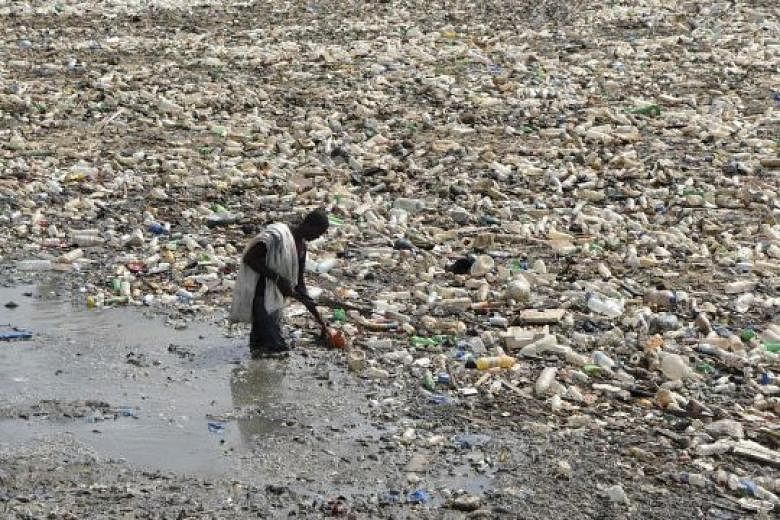For Lent, many Christians give up indulgences like tobacco, alcohol or sweets, or transgressions like lying and swearing. Don't forget the synthetic fabrics, wet wipes and those little boxes that hold dental floss.
The Church of England has asked people to add a new item to the list of ills they forsake for the six weeks of penance that began on Feb 14, which was Ash Wednesday: plastics.
Specifically, the church wants people to avoid the plastic consumer products and packaging that have become a major environmental problem, polluting oceans and rivers, fouling beaches, killing wildlife and clogging landfills.
"I think it might well be a first for us, to have an entire Lent programme on an environmental issue, but it is very much an integral part of what the church is about," said Ms Ruth Knight, the Church of England's environmental policy officer.
In fact, environmental stewardship "to safeguard the integrity of creation" is one of the five "marks of mission" the church lists in describing its purpose.
The church's Lent Plastic Challenge arrives on a wave of anti-plastic sentiment and legislation in Britain and across Europe, as more people conclude that the first element of the motto "reduce, reuse, recycle" should take precedence.
In December, the European Union announced binding waste-reduction targets for member nations, with particular emphasis on plastics.
Last month, a ban on plastic microbeads in cosmetic products took effect in Britain, and Prime Minister Theresa May's government committed Britain to a 25-year environmental plan that includes eliminating most plastic waste.
Several big cafe and restaurant chains have recently done away with plastic straws, and the government of Scotland has said it will ban them by the end of next year.
In Wales, Scotland and Northern Ireland, stores must charge five pence (10 Singapore cents) for each single-use shopping bag, whether paper or plastic.
The same charge applies in England for plastic bags at larger retailers. The measure has sharply reduced plastic bag use, and lawmakers say they want to impose charging more widely in England.
The Church of England has created a calendar for a plastic-free Lent, each day bearing either an environmentally themed Bible verse or a suggestion on how to avoid buying plastics.
Along with some of the easier-to-follow suggestions, like buying clothes made of natural fibres or taking reusable bags to the grocery store, are others that might require more effort, like finding dental floss that does not come in a plastic box, or using "a bamboo toothbrush or a toothbrush with recyclable heads".
"Some of them are more difficult than others," Ms Knight said. "It's definitely not a commandment to do all of them; it's encouragement to do as much as you can."
A large part of the world's plastic waste - estimates range from five million to 13 million tonnes per year - ends up in the oceans. Circulating currents have created immense rotating patches of waste, mostly plastic, in subtropical regions.
Wave action and sunlight break floating plastics down in smaller pieces, but some are very slow to degrade chemically, and are toxic.
Animals eat bits of plastic, with ill effects on them - and farther up the food chain, all the way to humans - that are only beginning to be understood.
NYTIMES

